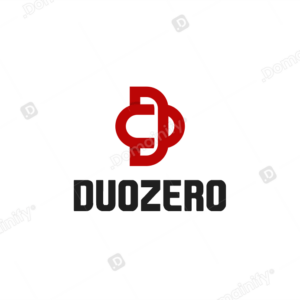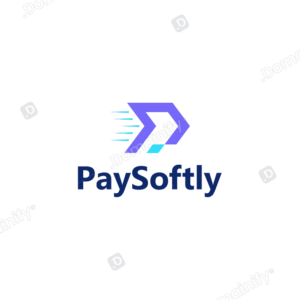A domain name is like virtual real estate. It serves as the hub for your brand’s operations.
It does not matter if you are creating a blog, exhibiting an online portfolio, or launching an eCommerce store. Your domain serves as the critical benchmark for customers searching for your website, making it closely linked to your brand.
It encourages potential customers to buy your goods and services and establishes your knowledge and authority. That is why it is vital to choose the appropriate corporate domain name.
However, if you are inexperienced with how to get a domain name, you may find it tough to explore the world of domain names. And with so many disclaimers and hosting firms to choose from, it’s easy to get caught up or, worse, make an error that might ruin your brand.
Fortunately, we have made the process easy for you, which even novices can do in a matter of minutes.
This article comprises eleven simple factors to consider before registering your domain name. These key factors should assist you in picking the best decision for your future domain name.
Pro Tip: You can choose the premium domain name for technology from our website Domainify and enjoy smooth post-sale service too. |
Let’s get to it!
11 Things to Do Before Registering
1. Know Your Competitors
Before you buy a proper domain name, you need to know which one your biggest competitor uses.
Analyzing a competitor’s domain name makes you understand their location, ranking, and perception in the industry, and analysis helps you decide before you buy a domain name.
Therefore, ask yourself the following questions:
Are there keywords included in the domain name?
How unique does it look?
How many characters does it have? Is it limited to 14 characters?
The more you learn about your competitor’s domain name, the better you can make the right decision about yours.
2. Research Relevant Keywords When Searching For Domain Name
It is vital to search for relevant keywords before registering your domain name. When you add keywords to your domain name, you automatically inform search engines about your online platform.
Keywords in the domain, great content, and a positive customer experience will make you rank better on Google.
However, finding a good domain with your chosen keywords that is not already taken might be challenging. So, to get a unique one, you need to be creative. Also, you can blend your keywords with other terms.
Considering this, remember that a perfect domain name must not entirely center on keywords. Hence, pick a good name that contains one or two keywords, or use a short acronym to capture the essence of your brand.
3. Select The Best Domain Name Extension
The current best domain name extension is “.com.” According to domain tools statistics, “.com” has the highest count out of the .com domain name extension.
So, what’s the reason for this?
It is because people easily remember the .com domain extension. However, there are many profitable sites with the “.net” and “.org” domain extension. Your web address will most likely perform better if it has the “.com” suffix. So, it is the most secure bet.
Moreover, we will suggest you go for .com. And try .net or.org if that is already taken. If another brand has selected this domain name, think of a new one.
And oh! – Stay away from strange extensions like “.home,” “.space,” “.room,” and similar ones.
4. Keep The Brand Name Simple
Irrespective of your website’s rank on search engines, it’s vital to have a URL that people can say without stuttering.
The difficulty picturing and remembering domains with unusual word spellings, hyphens, digits, and other symbols restricts creativity. Everybody should be able to type your domain name right after they hear it.
Recently, many companies have chosen 4-letter domain names that are simple to read. This results from the fact that domain names can keep aftermarket value besides being unique. Therefore, ensure that the name is short, easy to utter, and spell.
Your domain name shouldn’t contain any numerals or hyphens because they make it more challenging for people to recall and pronounce.
In addition, avoid using terms with many popular spellings. For instance, most people spell “ambiance as ambience.” Try to register a second domain with that alternative spelling if you must use one of them. Forwarding the variation to the main domain makes it simple for users to get to the web address without getting lost.
5. Avoid Trademarks Violations
If you pick a domain name that clashes with any existing business name, you risk losing it. And if you have invested money and effort promoting your website only to be compelled to give up the domain name, your online business is likely to suffer a serious, if not fatal, setback.
Hence, before you go about the domain registration, carry out a thorough check. Search social media platforms to confirm if the name already has a trademark registered. It is best to use a particular name on your web address and social channels. This will boost your brand visibility and make it simple for your visitors to find you on the net.
Furthermore, learn to steer clear of legal issues. Do this by avoiding names that are already trademarked. If you notice a name that has been selected, consider changing it so you can build unique social media profiles.
6. Make It Unique
A unique domain name may make your website stand out. In addition, it can support your marketing initiatives. In fact, if your website is a part of a bigger brand, it might be advisable to think about your domain name while coming up with the business name.
Besides that, you can look at other websites in your niche. So you can check which domain names they are using. Of course, nobody wants to use a trademarked business name or be accused of plagiarism. So, choose a more brandable business name.
Even if you are self-employed, you may still think of your website and body of work as parts of your brand personality.
For example, if you own a counseling clinic, you can include your name and specialty in an original yet branded domain name. A powerful URL in this case may look like dansmithpsychology.com. Another effective strategy is to add geolocation to the domain name. As it will help to target local customers.
7. Maintain Privacy
Domain name registrars usually provide domain name privacy. And this is also known as WHOIS privacy. It is a service to prevent the public display of your personal contact information in the WHOIS directory, and this database makes your details accessible to everyone.
The body in charge of establishing Top-Level Domains is ICANN (Internet Corporation for Assigned Names and Numbers). Hence, ICANN maintains the WHOIS directory (TLDs). And each domain must have the following data attached to it, under ICANN’s rules:
Email
Phone
Postal address
However, this is not the right way in today’s digital environment. Take charge of your privacy by switching off WHOIS on your domain name. Doing this will avoid certain spam and attempted frauds. And it reduces the possibility of your website being entirely or partially hijacked. Also, beware of domain name registrars asking you to pay more before they can help you do it.
8. Check The Domain Age
Even though domain age is an important factor to consider before domain registration, don’t focus solely on that. The reason is that the registration date does not completely guarantee the reliability of a website.
However, Google allegedly analyzes domain age to distinguish between trustworthy and fraudulent websites.
Although domain age is an indicator, an ancient domain is not always the best. The bottom line is that domain age is a relevant measure for analyzing domain names, but it is only one of several factors to consider. So, if you want to know how old a domain is, here’s how to go about it.
Visit godaddy.com/whois
Type the domain name
Search for it
9. Know The Cost
Before acquiring a domain name, it’s best to check the details so you’ll know what to pay for when moving to a domain registrar. Four primary factors determine the cost of every domain name:
The Selected Keyword: The SEO-friendliness of a domain name influences its cost. If a website’s URL has a common phrase, its price will rise. It is a simple SEO optimization that many prospective domain buyers take advantage of. SEO optimization is one of the most common digital business tactics for establishing and expanding an online presence. Thus, your fees will increase if your preferred domain name is a hot keyword.
The Domain Extension: The domain name extension will also influence the price of a domain name. Sites with the .com are more expensive than those with the.org domain extension. Similarly, a .edu or .net domain is cheaper than a .com name.
The Domain Name Registrars: Each domain registrar has its own pricing policy for domains. Some companies provide a low initial domain purchase but subsequently demand a high renewal fee. Others use more traditional pricing structures.
The Domain Demand: One of the most important deciding factors is the quantity of demand for the name. If a domain name is extremely popular and in great demand, its price will rise. But if you want a low cost, avoid looking for high-demand domain names. This is one of the most essential pricing considerations.
10. Choose Your Domain Registrar
Before you go about domain registration, you need the best registrar. There are thousands of domain name registrars, but Domainify is your best bet. Domainify is the go-to platform for acquiring excellent domain names and customized business packages. The platform is dedicated to assisting small, medium, and large-scale businesses in obtaining the quality business names to get you started.
Instead of going through the hassle of hunting through hundreds of domain names, you can easily find premium domain names in different business niches. That way, you can easily bring your business ideas to life with snappy, original names suitable for any type of business.
11. Protect Yourself From Cybercrime
A dangerous type of cybercrime occurs when hackers gain control of a registered domain. This causes digital stores to become inaccessible. Often, it redirects users to services owned by the hacker.
One of the biggest causes of domain hacking is the registrant’s inability to install adequate security measures. Whenever you register a new domain name, you can access its settings. Furthermore, fraudulent social engineering techniques, malware, keyloggers, or spyware might infect your devices and provide hackers access to your domain panel.
In addition, it’s critical to keep an eye out for any odd emails or activities on your account. These might be efforts to steal login details for harmful purposes. If possible, hide or use other login information for your domain owner’s profile and the domain administration system to minimize your cyber exposure.
We advise you to create backups of any content associated with your domain so that if it gets hijacked, copies will still be available elsewhere. Finally, before signing up with a web host or registrant, ensure that suitable security mechanisms (such as strong passwords and two-factor authentication) are in place. Otherwise, your website is in jeopardy!
Final Thoughts
Domain names serve as your digital address, and they have the potential to influence a visitor’s view of your brand substantially. Sadly, almost all the exclusive names were registered in the early days of computing. However, it doesn’t mean you can’t come up with a creative domain name for your company site.
In summary, carefully read the eleven factors below before registering your domain name.
Know your competitors
Research relevant keywords
Select the best domain name extensions
Keep the brand name simple
Avoid trademark violations
Make it unique
Maintain privacy
Check the domain age
Know the cost
Choose your domain registrar
Protect yourself from cybercrime
Determining the best domain name is like discovering the ideal music. What works best for your company and what users respond to will undoubtedly change. However, if you follow the eleven suggestions above, you will have a domain name that will survive the test of time.
















